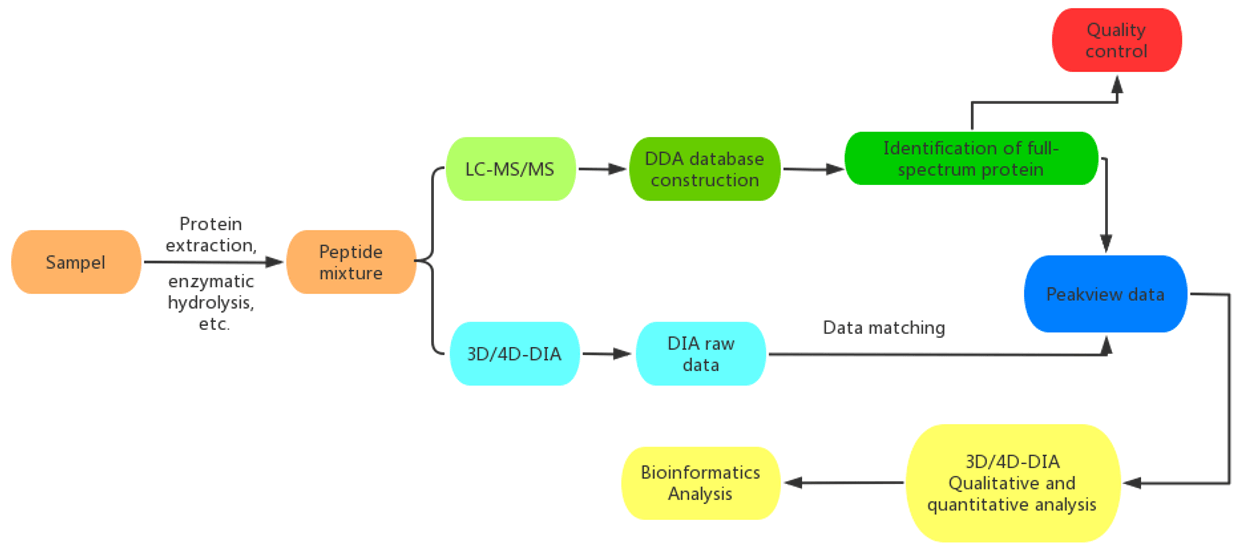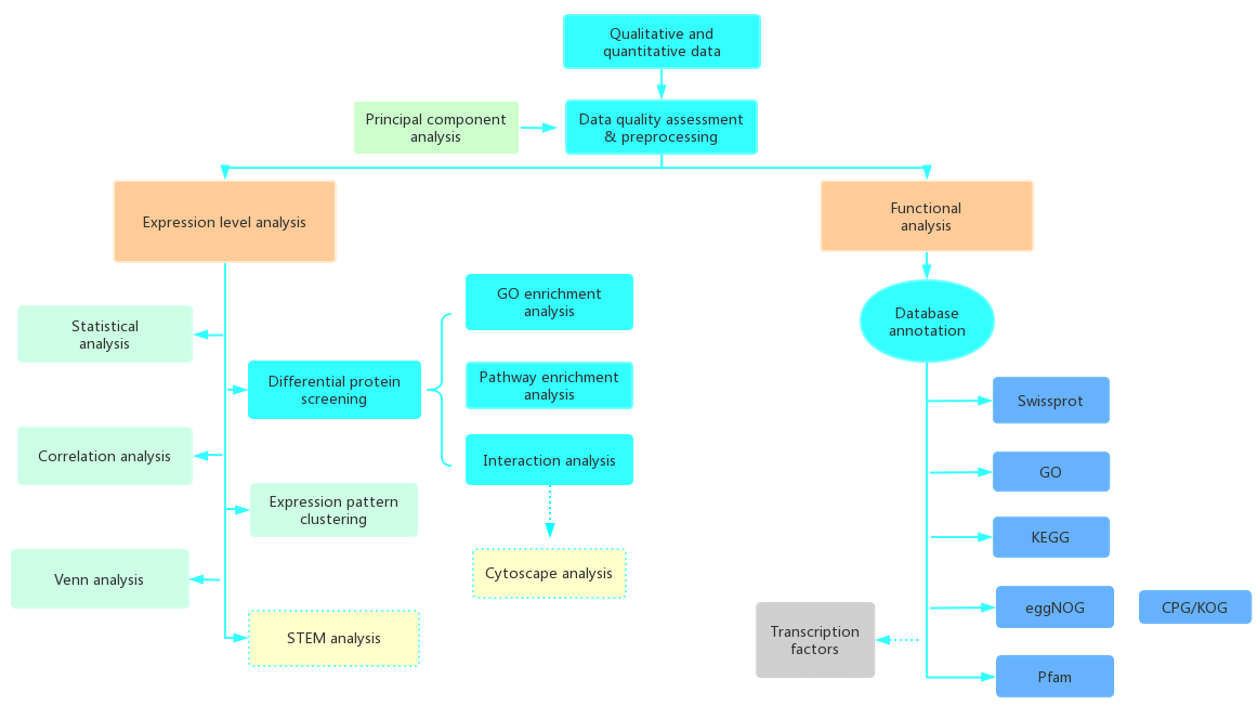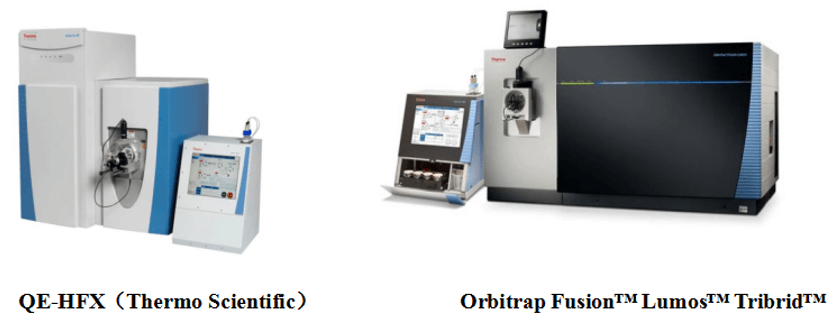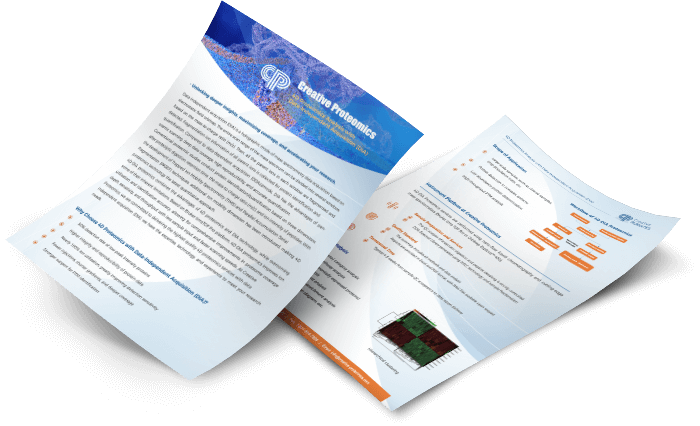Inflammatory Diseases Research Using DIA Mass Spectrometry Proteomics
The Importance of Inflammatory State Profiling
A successful inflammatory response is essential for the elimination of invading pathogens as well as angiogenesis and wound healing. However, prolonged inflammation can lead to deleterious consequences and is associated with many inflammatory autoimmune diseases.
Inflammatory autoimmune diseases such as rheumatoid arthritis, inflammatory bowel disease, psoriasis, and multiple sclerosis are the most common diseases. In the past few decades, their prevalence has expanded rapidly, which means that millions of patients are currently receiving continuous treatment with anti-inflammatory drugs to control their disease. For example, approximately 1% of the Western population is affected by rheumatoid arthritis (RA), a chronic and progressive inflammatory joint disease that severely affects patients' life quality. The molecular mechanisms that cause inflammatory autoimmune diseases need to be better understood to develop new therapeutic approaches to treat patients with inflammatory diseases.
In the past few decades, with the continuous advances in high-throughput protein analysis technology, there has been a great promise for biomarker discovery and the identification of new therapeutic targets. Significant advances in mass spectrometry (MS) technology allow for deeper and faster analysis, identifying more proteins, and reliably detecting even very low abundance proteins. In addition, mass spectrometry techniques are useful for identifying post-translational modifications and variants of proteins, allowing us to assess differences in glycosylation, phosphorylation, and acetylation status, providing more functional context for proteomic differences between health and disease states. These technological advances are particularly important for using biological fluid samples (e.g., sweat, saliva, tears, and serum) in inflammatory disease research. Importantly, these extensive proteomic analyses are not limited to identifying diagnostic biomarkers and therapeutic targets but are also valuable tools for screening the effects of novel therapeutic agents. In summary, high-throughput proteomic analyses offer promising prospects for the discovery of diagnostic, prognostic, and therapeutic monitoring biomarkers and the development of new therapies for inflammatory autoimmune diseases.
Advances in Proteomics Help Inflammatory Diseases Research
DIA (data-independent acquisition) refers to data-independent scanning mode, a holographic mass spectrometry data acquisition mode based on the electrostatic field orbitrap. DIA follows primary mass spectrometry detection with a specific mass-to-charge ratio. All parent ions in the range are fragmented, all fragment ions of the parent ions are collected, and all fragment ions within the wide openings of adjacent parent ions are rapidly scanned sequentially for protein characterization and quantification. DIA has better accuracy and reproducibility compared to DDA (data-dependent scanning mode). DIA combined with MS, a method that allows a wide range of peptide quantification with high reproducibility and precision. Using DIA MS can detect more inflammation-related cytokines, proteins, and other functional substances in low abundance, thus digging for potential biomarkers.
Our Proteomics Services for Inflammatory State Profiling
As a leader in proteomics technology, we have launched discovery proteomics and targeted proteomics services based on DIA quantitative technology, which can provide proteomics services of inflammatory-related diseases.
Workflow
The depth and relatively straightforward nature of our workflow should make it a powerful new tool in the detection of inflammatory states.

Data Analysis

Sample Requirements
We can analyze various types of biological samples, including but not limited to:
Animal and clinical tissue specimens: 200mg/sample
Serum, plasma: 200μL/sample
Cells, microorganisms: 1×107cells/sample
Detection Platforms

Report
- Experimental steps
- Relevant parameters
- Mass spectrometry spectra
- Raw data
- Proteomics analysis results
References:
- Vito Dozio et al. Profiling the proteomic inflammatory state of human astrocytes using DIA mass spectrometry. J Neuroinflammation. 2018; 15: 331.
- Hannah Youngblood et al. Proteomic Biomarkers of Retinal Inflammation in Diabetic Retinopathy. Int J Mol Sci. 2019 Oct; 20(19): 4755.


 4D Proteomics with Data-Independent Acquisition (DIA)
4D Proteomics with Data-Independent Acquisition (DIA)